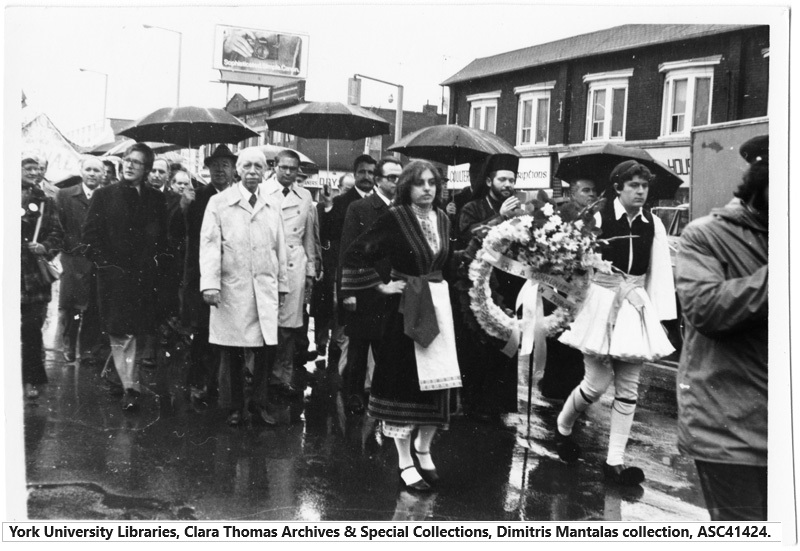Bill S-259
On March 29, 2023, Senator Tony Loffreda introduced Bill S-259, “An Act to designate the month of March as Hellenic Heritage Month,” for first reading in the Senate. The Bill is currently in the second reading stage of the legislative process. Should it pass a third reading, the Senate will refer it to the House of Commons.
Some questions naturally arise:
1) Why is it important for Greek Canadians to have March recognized as Hellenic Heritage Month?
Heritage months invite Canadians to recognize particular communities’ contributions to our country. Empowering groups to share their stories, experiences, and perspectives promotes greater empathy and inclusion. In 2019, Ontario was the first province to recognize March as Hellenic Heritage Month. Since then, community organizations, student associations, and school boards have used the month to host workshops, talks, plays, and cooking lessons. Such public events inspire communal pride. More importantly, they foster understanding across cultural boundaries. Engaging friends and neighbours through a lecture on Toronto’s Greektown or a rebetiko performance prompts reciprocal obligations. Sharing dolmades leads to trying a dosa. A hasapiko dance lesson begets a Haida basket-weaving workshop. These exchanges strengthen our attachment to our diverse society. And in learning about our similarities and differences, we nurture a sense of belonging to a shared Canada, blurring the contours of our vibrant mosaic. National recognition of Hellenic Heritage Month will help educate Canadians about Greek Canadian history and culture. More importantly, it will enhance existing efforts to promote cultural understanding and engender new initiatives throughout the country.

2) How would such recognition contribute to preserving, protecting, and promoting Greek Canadian culture in Canada?
The enthusiasm generated by Hellenic Heritage Month events in Ontario has already inspired new initiatives. In 2021, the Hellenic Heritage Foundation and York University established the HHF Greek Canadian Archives to collect, preserve, and create resources relating to the history of Greek Canada. That same year, the Government of Ontario announced its support for developing a Greek Canadian heritage museum to store artifacts of historical value. These projects reveal a widespread desire to preserve Greek migrants’ memories and highlight the impact of such recognition within a single province. They also signal broad dissatisfaction with the tired depiction of Greek Canadian history as the struggle of poor, hardworking migrants for “middle-class respectability.” National recognition for Hellenic Heritage Month would amplify these new institutions’ efforts to retrieve a more textured past. It would motivate deeper collaboration between universities, archives, museums, community organizations, and the greater Greek Canadian community. Finally, a nationally recognized Hellenic Heritage Month would invite meaningful reflection from teachers, researchers, and community members interested in reframing our history.
3) How would the greater Canadian population benefit from Hellenic Heritage Month?
Canada’s cultural diversity is a fact; how we respond is a choice. Diversity without recognition or engagement produces insular enclaves or worse. An inclusive society requires sites of open dialogue where we learn about one another, our histories and traditions. National recognition for Hellenic Heritage Month would empower our community of 260,000 to showcase Greek Canadian history as part of Canada’s history. Canadians benefit by learning about the 1918 anti-Greek riot and the dangers of diversity without engagement. They benefit by knowing that many Greek migrants fought alongside Canadians in both world wars and that many Canadians stood in solidarity with opponents of the Regime of the Colonels. They benefit by learning about sixteenth-century adventurer Ioannis Fokas, Supreme Court Justice Andromache Karakatsanis, and founder Mike Lazaridis. Most importantly, Canadians benefit by recognizing this history as interwoven with their own.
Vasilis (Bill) Molos
Director and Research Lead, HHF Greek Canadian Archives at York University
vmolos at yorku.ca
